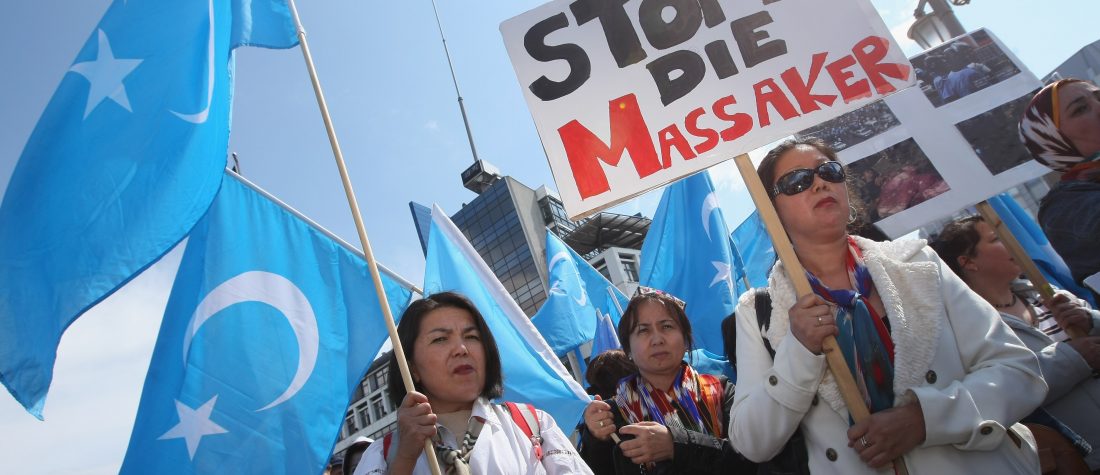Coronavirus has proved a geopolitical earthquake. Among the many changes accelerating after its outbreak, the virus has also been a turning point for Chinese foreign policy and influence operations around the world. This calls for a careful reassessment of EU strategy on China.
For the past year, China has been more assertive in its foreign policy and at the same time bolder in its contempt for human rights, democratic principles and the country’s commitments to bilateral and multilateral agreements. The crackdown on Hong Kong’s democratic movement, the military stand-offs on the India-China border, the South China Sea and the Taiwan strait, and of course the egregious violations of the human rights of the Uighurs: these are not only matters of grave concern, but indications of a more profound shift in China’s behaviour.
In Europe, there is evidence of coordinated hacking campaigns conducted by Chinese state-linked groups and substantiated reports of major disinformation campaigns at a time when Chinese state broadcasters are scrutinised for a lack of editorial independence. When it comes to the pandemic itself, Chinese influence operations – in a disturbing convergence with Russian practices – have been peddling strategic narratives about China’s significant role in fighting the pandemic and in helping European countries.
Apart from Covid diplomacy, China has been eschewing the values that are fundamental for the EU and piling pressure on European countries with other diplomatic initiatives and industrial policies. The inclusion of Italy and Luxembourg in the Belt and Road initiative has driven a wedge in the heart of Europe, while the 17+1 initiative with Central and Eastern European countries can be seen as an attempt to wriggle out of the EU periphery from a common approach towards China. Finally, Chinese state-owned companies operate overseas with a mission to export their national economic model and increase Europe’s dependency on Chinese technology and supply chains, while at the same time Beijing is trying to reduce its own dependency on European imports.
The problem of the current EU approach
The current EU approach recognises Beijing as a valuable economic and diplomatic partner and identifies the challenges in dealing with a major power that operates with an economic and political model that lacks respect for fundamental EU values. The strategy so far has been to create a mix of rewards and punishments in order to induce desirable behaviour, in particular using economic leverage in order to engage with China on climate change goals and human rights issues. The EUChina Comprehensive Agreement on Investment (CAI), which was agreed in principle at the end of the last year, is the latest attempt to apply this carrot and stick approach. Yet, it seems that the deal will not go through unchallenged. In the European parliament, which eventually will have to give its consent to the agreement, many concerns are being raised, notably about the lack of transparency in striking the agreement, the lopsided benefits that seem to favour China and the lack of concrete and binding steps that China needs to take in order to cease human rights violations and conform with international norms against forced labour. And rightly so.
Of course, the CAI is only one tool the EU is trying to put in place in order to introduce stricter conditions on EU-China economic relations. The EU is also preparing a framework for due diligence on the supply chain and Magnitsky-style sanctions against human rights violations. Even combined, these approaches do not take into account all the challenges associated with an increasingly assertive China which threatens to undermine the Union’s strategic autonomy.
An EU strategy on China fit for a post-Covid world
Europe should continue linking economic relations with China’s behaviour on common global challenges, like climate change, and on human rights issues, in accordance with fundamental EU values. However, investment and trade conditionality by itself is not enough to counter Chinese assertiveness, especially since China is rapidly outgrowing the world’s biggest economies. This can be addressed with better coordination between the EU, the US and other liberal democracies.
Most importantly however, the post-Covid shift in Chinese foreign policy is coming in parallel to a wave of digitalisation that puts technology at the forefront of the international political economy. Europe is already lagging behind China in vital technologies that will shape the future, such as AI. The rollout of 5G projects, funding for research into 6G and big data technology will be key both for economic growth and for the EU’s role as a geopolitical actor. If the EU wants to think strategically about the bloc’s relation with China, it also needs to address other dimensions of this relationship, such as digital sovereignty and supply chain security.
Closing the technological gap with China, new industrial policies that decrease reliance on Chinese supply and the creation of regulatory frameworks that promote ethical innovation in these sectors are indispensable elements of an EU strategy that fits the post-Covid world. They can counter Chinese assertiveness, by increasing EU strategic autonomy.
Hilde Vautmans is an MEP for the Dutch-speaking constituency in Belgium


